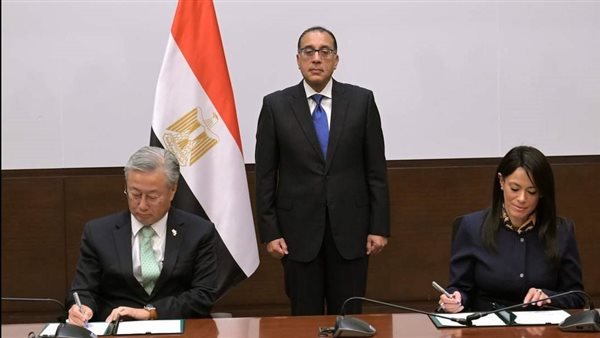
A sudden jump in gold prices… happy news for Egyptian banks… and important cooperation with Japan… Welcome to Tuesday’s News Harvest
Starting from the goldsmiths market…the price of gold today in Egypt, which is witnessing an increase, in the local market during trading on Tuesday, November 19, 2024, to record 3690 pounds per gram.
The price of 21 karat gold recorded about 3690 pounds per gram, as it is the best-selling karat in the local market. While the price of 24 karat gold recorded about 4217.25 pounds per gram, and it is considered the highest price in Egypt and the most valuable.
In the same context, the price of 18 karat gold today was about 3,162.75 pounds per gram… while the price of 14 karat gold today was about 2,460 pounds per gram… while the price of the gold pound was about 29,520 pounds, as it weighs 8 grams of 21 karat gold.
Gold prices in Egypt vary according to the workmanship price, which varies from one store to another. The average price of workmanship and stamp duty in goldsmiths’ shops ranges between 100 and 130 pounds, depending on the type of gold karat, as well as according to goldsmiths’ shops, from one governorate to another, and from one merchant to another.
We go to Fitch Credit Rating Agency, which on Tuesday raised its rating on four local banks in Egypt from “B-” to “B” with a stable future outlook, explaining that its decision reflects the strong connection between the creditworthiness of banks and the creditworthiness of the Egyptian economy.
The four banks include the National Bank of Egypt, Banque Misr, Banque du Caire, and Commercial International Bank – Egypt (CIB). The agency indicated that the sector’s total exposure to sovereign debt represents 53% of total assets and is equivalent to about 8.3 times equity at the end of 2023.
The international agency attributed its decision issued today to the increase in liquidity in foreign currencies through the Ras El Hekma agreement, the International Monetary Fund package, and foreign investments and remittances, stressing that the performance of banks will remain strong in the medium term, supported by high interest rates, strong business growth, and greater macroeconomic stability.
We go to Hossam Heiba, CEO of the General Authority for Investment and Free Zones, with a delegation from the Japan Bank for International Cooperation, headed by Kinashirwa Kitamura, the bank’s representative in the Middle East, to develop sustainable mechanisms for financing Japanese companies wishing to invest in Egypt.
The Japan Bank for International Cooperation specializes in financing Japanese companies investing in government and private development projects outside Japan.
Kinashirwa Kitamura stressed the bank’s desire to support Japanese projects operating in Egypt, especially the green hydrogen sector, whether by financing Japanese companies directly or establishing partnerships with Arab investment funds operating in Egypt.
The CEO of the Authority indicated that cooperation with the Japan Bank for International Cooperation will contribute to doubling Japanese investments operating in the renewable energy sector in Egypt, and achieving the Egyptian government’s goal of acquiring 8% of the global green hydrogen market by 2040, and for Egypt to be one of the main countries for exporting Renewable energy to the European continent.
We go to Engineer Mohamed Shimi, Minister of the Public Business Sector, who held an expanded meeting with the heads of companies affiliated with the Ministry operating in the textile sector, to discuss the latest developments and determine the progress of work in the various sites and axes included in the project, within the framework of periodic follow-up of the executive position of the national project for industrial development. Spinning and weaving.
At the meeting, Shimi stressed the importance of this national project and its vital role in reviving the historic industrial sector of spinning and weaving, which represents one of the main pillars of the Egyptian economy, and contributes to achieving a qualitative leap in the level of quality and production. It also represents an important step to maximize the added value of local products, and open New export markets and support for the national economy. It is considered one of the largest industrial projects implemented in the public business sector.



